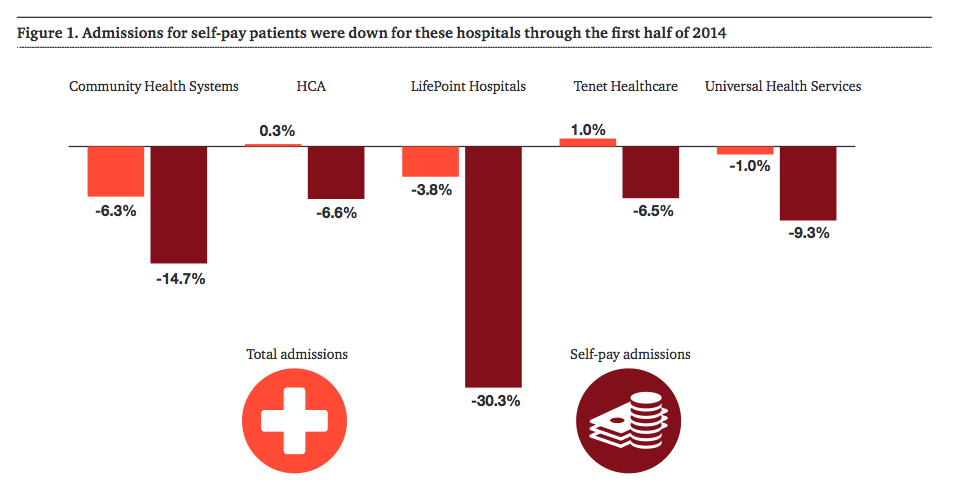Actually, ER Visits and Costs Decline After Medicaid Expansion
Let’s clear up a few misstatements about what happens to hospital emergency room visits after states expand Medicaid.
Studies from Oregon, California, and Arkansas show that their ER visits and expenditures declined after those states expanded Medicaid, although in some cases there was a brief, initial increase.
The Oregon report has been cited as evidence that ER visits increase. But here’s the rest of the story, as reported in the Washington Post:
Officials out in Oregon don’t dispute the results — but they do argue that the study doesn’t offer a great picture of what’s happening out there right now. The Science study looks at a 2008 expansion. A lot has changed in the past five years. In fact, over the past two years, Oregon has actually seen a decline in Medicaid emergency department visits this past year — and attributes that to big changes the state has made to how it delivers care to Medicaid patients. [Emphasis added.]
The California study, released just last week, explains there’s a surge in medical visits when previously uninsured residents have the opportunity to address long-neglected health problems. After those initial visits, emergency rooms see a sharp decline in the number of visitors.
This PwC report on Arkansas notes, “In a statewide survey of 42 hospitals, the association found a 2% decline in emergency department visits. Patients that were admitted, however, increasingly had coverage. Arkansas hospitals saw about a 30% decline in uninsured patients.”
Of course, reducing ER visits – and the pressure on local property taxes to cover unpaid ER bills for the uninsured – isn’t the only reason Texas should expand Medicaid or develop a Texas alternative.
Accepting our share of the new federal health care funds would improve the health of Texas parents and workers. It would create over 200,000 jobs in three years and boost our economy. It would reduce our insurance premiums.
Other red states are negotiating health care plans with the federal government to use their share of the new funding. Texas should sit at the negotiating table, too.






